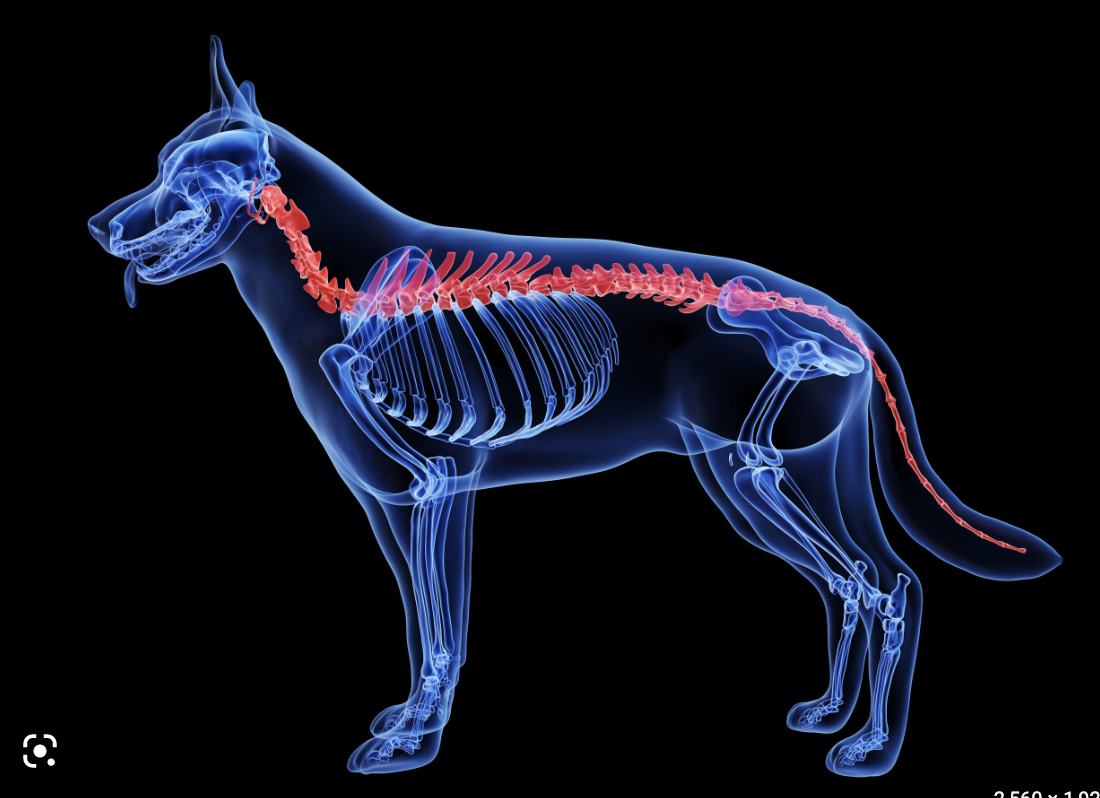
Canine Degenerative radical Myelopathy (CDRM)
What is CDRM?
CDRM (also know as DM - degenerative myelopathy) is a degenerative disease of the spinal cord, where the white matter of the spinal cord degenerates over time, which results in progressively weakening of the hind limbs and in some cases can also lead to paralysis.
It is often non painful and can be mistakenly diagnosed for other orthopaedic diseases in the hips or stifle joint. The nerves in the middle of the back, the thoracolumbar spine, tend to be affected initially but this can quickly spread up and down the spine.
Video by Shammiedog. Please note that BelMar Canine Massage Therapy is not affiliated woth Shammiedog.
how does it progress?
CDRM usually affects middle aged to older dogs, sometimes from 5 years old, but typically from 8 years old.
The initial signs can be hard to detect and can be misunderstood as other orthopaedic conditions. The first sign is usually a non-painful weakness will develop in one hind limb.
Over the next few months the dog will develop an ataxic, which is commonly referred to as a “drunk sailor walk”. The dog may also drag their paws, causing damage to the paws, cross their hind limbs when walking and also they may fall over when changing direction.
Image by Vet Help Direct. Please note that BelMar Canine Massage Therapy is no affiliated to Vet Help Direct. what causes ?
According to most research the exact cause of CDRM is unknown, however it is suspected it could be due to a genetic defect.
The most agreed cause for the most common form of CDRM is due to a genetic mutation in the gene coding for superoxide dismutase, a protein that destroys free radicals in the body. Free radicals are part of the bodies natural defence mechanism, however, if there are too many then they become harmful, causing cell death and the onset of some degenerative diseases.
CDRM is incurable and the symptoms will get progressively worse as the dog gets older, so speaking to a vet about the health and happiness of the dog should be continued throughout.
Massage therapy and some physiotherapy will also aid with associated problems around the body as a result of overcompensation to CDRM.
what are the symptoms?
Early symptoms include:
weakness and loss of coordination in one or both of the hind limbs
Dragging or scuffing of the rear digits (toes)
Stumbling or falling when turning
Developed symptoms also include:
Increase in loss of strength or coordination of hind limbs and inability to have strength to stand from laying position
Front limbs can also begin to experience loss of strength or coordination
Incontenance
Paralysis

how can massage help?
Dogs with CDRM usually have tight muscles around their front limb, neck and thoracic spine where the muscles are overcompensating for the rear end so massage on the areas will aid to increase mobility and reduce pain and tension in this area.
Increase neurological function which will help with increasing nerve input and feedback to the affected areas.
Increase blood flow to the affected areas which will increase the healing of tissue.
Massage will stimulate the PNS (peripheral nervous system) which will help the dogs awareness of the rest of their body, which will help them to cope with the loss of senses from their hind quarters.
Helps to relieve the pain caused by overcompensation in other areas of the body such as the neck, shoulders and along the back
Stimulates endorphin release (‘feel good’ hormones) that relieve pain, reduce stress and can help your dog to feel happier
Promotes stimulation of muscles through passive movement which may help to keep a dog mobile for longer.
Contraindications (reasons to not massage or to alter the massage) to be aware of - if your dog is showing any signs of the following then please let me know and then we can discuss a treatment schedule to work around or outside of the particular issue.
Epilepsy
The severity of the condition
The level of inflammation in the area (heat therapy should be avoided if inflammation present)
Skin irritations such as eczema
Bruises
Open wounds
High blood pressure
Diabetes
Cardio-vascular conditions
Broken bones
Pregnancy

